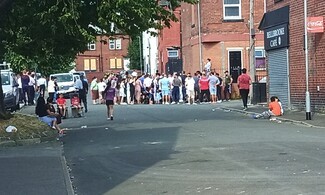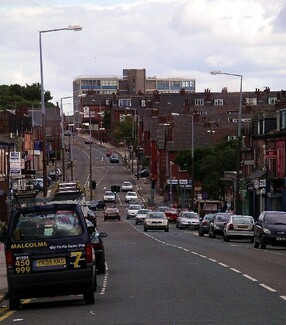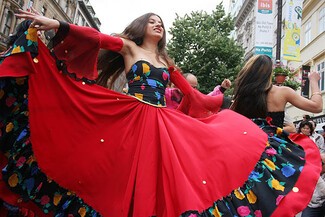UK Roma charities speak out after removal of children in Leeds sparks disturbances

Roma charities and organisations have called for an immediate reset in how social services deal with Roma families after the state removal of a number of Roma children, on Thursday afternoon last week, sparked civil unrest and violence in the Harehills area of Leeds.
The Roma Support Group, a national charity based in London, has condemned the violence, whilst also calling for an immediate review by Leeds City Council of the removal of the children by social services – which the council has now promised to do.
“We are concerned by the forceful manner in which the children were removed and the impact this has had on them and the wider community,” the Roma Support Group said in a public statement released on Saturday.

The charity also condemned the “virulent racism” on social media following the incidents.
“Roma communities in the UK are frequently subject to racial stereotyping and stigma and this tragic event is being manipulated to stoke hate and division.”
The statement was supported by a number of organisations, including the Luton Roma Trust, Romano Lav and the Romani and Traveller Social Work Association.
The full statement can be seen by clicking on this link here.
The organisations also called on the Government to ensure that Roma families have access to culturally appropriate support during child protection investigations.
Just because of who I am - watch this video from the Roma Support Group:
Roma started to migrate to the UK from Central and Eastern Europe in 1989. In 2021, Roma was added as an ethnic category to the UK national Census for the first time, and 103,200 people recorded themselves as Roma. Experts believe this to be an undercount and that the number of Roma living in the UK is closer to 200,000.
Research shows that Romany Gypsy, Roma and Traveller families are subject to a higher number of state child services interventions than the wider population.
Unlike the Census, the Department for Education, which collects the statistics about the number of children in the care system, does not have ‘Roma’ as a separate category to Romany Gypsy and the two ethnic groups are lumped together.
Even so, the statistics show that while the number of all children in care has risen over the last four years, the number of Gypsy/Roma children in care has risen more than twice as much.

In Eastern and Central Europe, the situation is even worse. In Bulgaria, were Roma make up 10% of the population, well over half of the children in care institutions are Roma. In Slovakia, 80% of the children in care institutions are Roma.
Roma and the UK’s Romany Gypsies are all Romani or Romany people whose origins are the result of a series of mass-migrations from northern India in the 10-12th centuries. The UK’s Romany Gypsies first reached Great Britain and settled in the 16th century. In many countries in Central and Eastern Europe, the Roma were enslaved.
TT News
(Lead photograph: A peaceful meeting of local Harehills residents a couple of days after the disturbances. By Mtaylor848 - Own work, CC BY-SA 4.0, https://commons.wikimedia.org/w/index.php?curid=150536054)